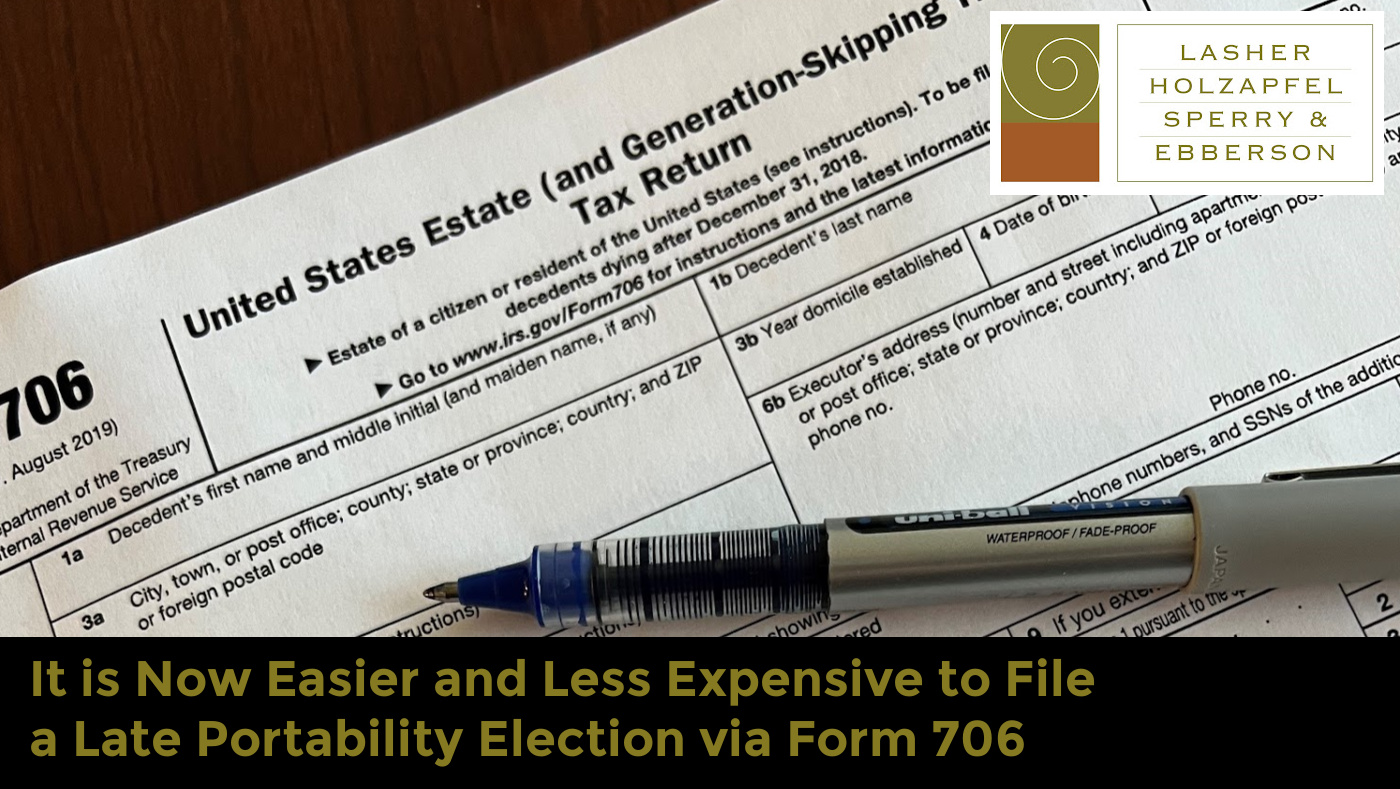It is Now Easier and Less Expensive to File a Late Portability Election via Form 706

Posted on August 16, 2022 by Lasher Holzapfel Sperry & Ebberson
On July 8, 2022, the IRS issued Rev. Proc. 2022-32 that simplified the method for obtaining late relief for failure to timely make an estate tax portability election and extending the time for filing portability returns from two years after the death of the first-to-die spouse to five years. A portability election allows the surviving spouse to claim and use during life or at death the deceased spouse’s unused estate and gift exclusion amount (the deceased spousal unused exclusion amount, or “DSUE” amount) for gift and estate tax purposes. The new procedure is available for estates that are not required to file an estate tax return because the value of the gross estate and adjusted taxable gifts is under the filing threshold and the decedent has a surviving spouse. The simplified method is not available to estates that are required to file an estate return or to estates in which the executor timely filed an estate tax return.
This new process replaces prior procedures described in Rev. Proc. 2017-34 (which followed prior issuance of Rev. Proc. 2014-18) that allowed an estate to file an estate tax return within two years of death to elect portability. Prior to Rev. Proc. 2022-32, if the late filing was beyond the two-year period granted in Rev. Proc. 2017-34, the estate would be required to obtain a private letter ruling to receive an extension of time to file an estate tax return to elect portability. Although IRS seemed to freely grant many extensions requested via private letter ruling, the estate bore the burden and significant expense of the private letter ruling procedure, and the IRS had the additional burden of processing the request.
To provide tax relief (and ease the burden on the IRS), Rev. Proc. 2022-32 grants automatic relief under Treas. Reg. § 301.9100-3 and extends the time to elect portability for certain qualified returns. Specifically, those where each of the following are true:
- The decedent died after December 31, 2010, was a citizen or resident of the U.S. on the date of death, has a surviving spouse;
- The executor is not required to file an estate tax return under IRC § 6018(a) (based upon value of gross estate) (i.e., the executor is only filing the Form 706 to elect portability; AND,
- The executor did not file a timely Form 706.
If these requirements are met, the executor must file the complete and properly prepared Form 706 which must state at the top of the Form 706 that the return is “FILED PURSUANT TO REV. PROC. 2022-32 TO ELECT PORTABILITY UNDER § 2010(c)(5)(A), on or before the fifth anniversary of the decedent’s date of death, and such return will be considered to have been filed timely under Treas. Reg. § 20.2010-2(a)(1).
If you need assistance with estate or gift taxes, the Estate Planning, Trusts & Probate team at Lasher is here to help.
